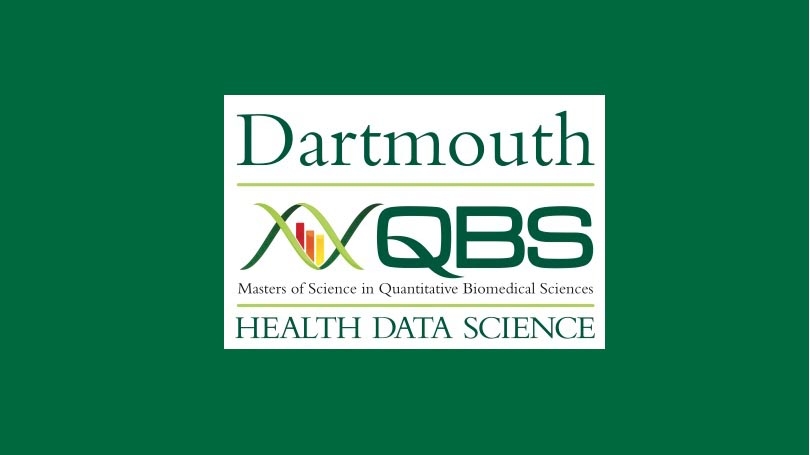Dartmouth’s Graduate Program in Quantitative Biomedical Sciences (QBS) is offering a new master’s degree with a concentration in health data science beginning in fall 2018. This new degree is part of Dartmouth’s innovative interdisciplinary graduate program, which trains doctoral students in bioinformatics, biostatistics, and epidemiology.
“I’m very excited to see the launch of this new degree program. It will reach a new population of learners in one of the fastest growing and most versatile scientific disciplines, and is a natural outgrowth of the strengths of our faculty in this area,” Geisel School of Medicine Dean Duane Compton, PhD, says.
With an inaugural class of 12 students, the 15-month program is designed to provide future data scientists interested in health care with a wide range of core skills: exploratory statistics, high performance computing, and statistical modeling along with the ability to communicate the value of this information verbally, visually, and in writing.
“In addition to our strengths in teaching biostatistics, bioinformatics, epidemiology, and computational biology, we are adding training in data visualization, data wrangling, and machine learning,” says Todd MacKenzie, PhD, a professor of biomedical data science at the Geisel School of Medicine and a co-director of the program.
Data science programs have been blossoming at a rapid pace in tandem with the acceleration of big data collection. The vast increase in medical data generated across a wide variety of platforms is both unstructured and unwieldy. And as big data continues to influence health care, collecting, managing, and analyzing it is crucial to turning it into knowledge capable of transforming medicine.
“Graduates will be able to engage in projects that utilize and combine data from a variety of resources: electronic health records, mobile devices, social networks, internet applications, the genome, and countless other data sources to solve problems in health care and health care delivery at both the individual and community level,” MacKenzie adds.
“We are delighted to be able to offer this innovative masters program that will train students for one of the largest growth areas in the country. It builds on the expertise of faculty in the Department of Biomedical Data Science, in the QBS Program at Geisel, and from faculty at Dartmouth College. There is critical need in the workforce for graduates with these skills and we’re very excited to train students to fill this gap in our workforce,” says Michael Whitfield, PhD, director of the Program in Quantitative Biomedical Sciences and a professor of molecular and systems biology.
A second concentration in epidemiology will be added the following year.
QBS is also offers a reduced cost degree for Dartmouth undergraduates who complete a portion of the degree requirements prior to matriculation into the Health Data Science Program.
For more information about these programs, please contact Kristine Giffin and Shaniqua Jones at quant.biomed.sci@dartmouth.edu.
About the Geisel School of Medicine at Dartmouth
Founded in 1797, the Geisel School of Medicine at Dartmouth strives to improve the lives of the communities it serves through excellence in learning, discovery, and healing. The Geisel School of Medicine is renowned for its leadership in medical education, health care policy and delivery science, biomedical research, global health, and in creating innovations that improve lives worldwide. As one of America’s leading medical schools, Dartmouth’s Geisel School of Medicine is committed to training new generations of diverse leaders who will help solve our most vexing challenges in health care.
This article was first published on the Geisel Insider news site.
